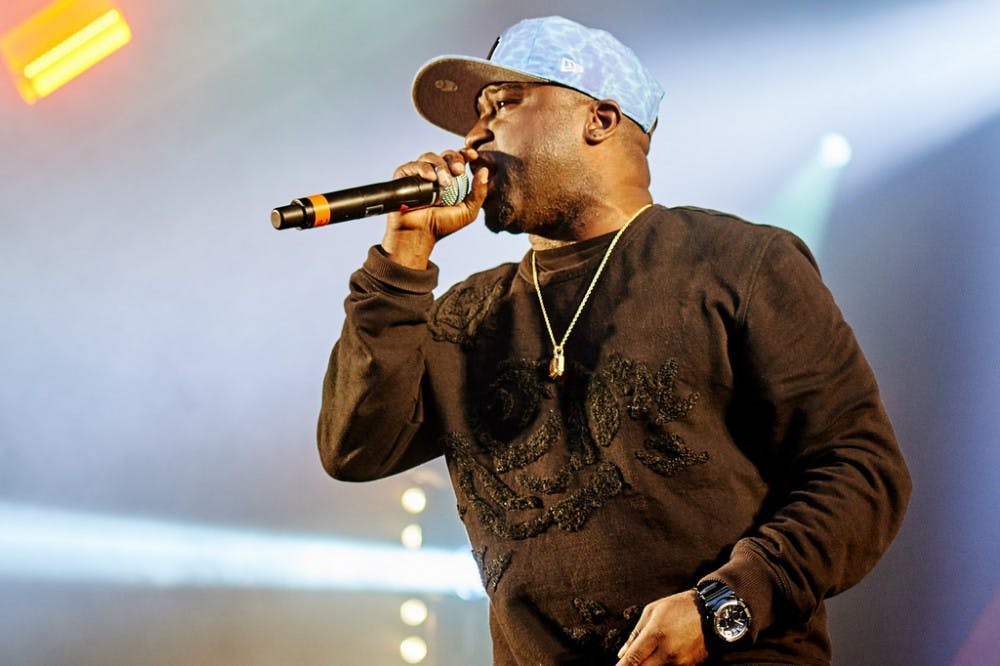I’d like to preface this article by saying that I am an incredibly privileged person who was lucky to have the means and opportunity to pursue a college education. Many people do not get the same chances I got, and I realize that they might be happy to be in my position. But with that said, college was fucking miserable. Of course misery is relative, but I think I pretty much bottomed out around a half a dozen times over the last four years.
Now, it’s all coming to an end. Four years of stress, doubt and self-hatred are culminating in a six-hour long ceremony where some asshole gives me a piece of paper. Then there I’ll be, with a degree, an unclear future and the already rotten structure of my mental health dangerously close to total collapse. So in lieu of thinking about that grim prospect, I’m going to talk about some music that got me to this point.
It’s hard to pick a favorite album, like really fucking hard. There’s a lot of music out there and you can never be certain what you might come across. But over the last four years, I’ve consistently returned to one album no matter what: Mobb Deep’s The Infamous.
Released in 1995, The Infamous planted itself squarely in the midst of a seminal decade for hip hop. In the span of 10 years, a couple dozen genre-defining albums and artists broke onto the scene, and that was just in New York. But even though it isn’t the most recognizable or popular work from that era, The Infamous has a value well beyond its accessibility.
What the Queensbridge duo of Havoc and Prodigy created was many things. It was equal parts a gritty landscape of 90s New York, a joint autobiography of two young black men’s struggles, and a beautifully crafted artistic experiment that perfectly combined haunting but melodic beats with monotone, matter-of-fact rhymes.
I, however, am neither black nor poor, nor do I live in New York. Thus, I can hardly claim any real connection with the stories that Havoc and Prodigy tell, although they are both truly great storytellers. What I do feel in this album though are the base emotions that it evokes. Indeed, this is the value of a story; you don’t have to have any real experience of the subject matter to feel a connection with it.
The Infamous spans the emotional range both in its lyrics and its production, switching from defiant aggression to hopelessness and rage then back again to defiance. Lyrically, Prodigy stands out as the better storyteller of the two. Born Albert Johnson, Prodigy was afflicted with sickle cell anemia for his entire life, which ended last summer. He was 42 when he died.
In a discussion on the podcast Drink Champs, hosted by N.O.R.E — another Queens native and one-half of the classic duo Capone-N-Noreaga — several of Prodigy’s contemporaries have said that his illness gave his lyrics an emotional weight beyond their objective meaning.
They have a point. Prodigy’s lyrics are fatalist and at times nihilistic, yet also full of life. Prodigy tells his story with the voice of someone who knows he could die any day. His words and style of rhyming have an inherent strength, seemingly a facet of how close he was to death at all times and his refusal to just lay down and die.
That strength is what makes his music so great; no matter how bleak his life looked, Prodigy approached and spoke about the challenges facing him with characteristic defiance.
Not to discount Havoc’s ability as a rapper, but his lyrics were somewhat overshadowed by his production. Havoc’s beats, much like Prodigy’s lyrics, were deceptively straightforward and simple: Bare piano chords, steady bass and uncomplicated drums all joined together to create a bleak and foreboding sonic landscape.
Havoc, whose real name is Kejuan Muchita, is recognized as having not only helped create the Mobb Deep sound, but also having helped to define hardcore hip hop. He made beats that took hardship and made it beautiful, reusing soulful melodies and breaking them down into their constituent parts until they became unyielding and aggressive.
The production on The Infamous was lyrical in itself. The way Havoc stitched together different samples defined the group’s unique style and gave voice to the emotional impetus behind the music. It would be impossible to imagine Prodigy without Havoc or vice versa. That’d be like Drake without a ghostwriter; they need each other to exist.
Like I said, I’ll never know what it was like to be Havoc and Prodigy; I’ve never lived a life like they did, for which I am grateful. But The Infamous is an important album for me because it made music out of all the feelings I couldn’t express. It was there when I was angry, when I was sad, when I was frustrated, when I was stressed, when I couldn’t really think of any reason to even try. So basically fuck you, The Last Four Years, and I’ll be walking across the stage with “Survival of the Fittest” playing on a loop in my head.





